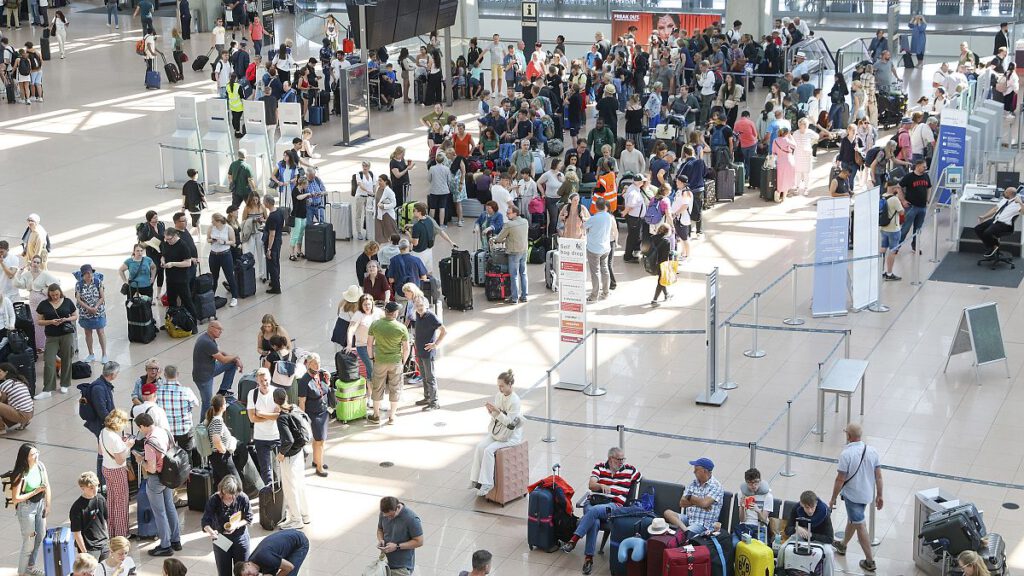The glitch was caused by a corrupted update that crashed Windows computers, causing chaos across much of the world, grounding planes, preventing some businesses from accepting card payments and forcing hospitals to cancel surgeries.
advertisement
Microsoft estimates that the recent global IT outage affected around 8.5 million computers worldwide.
This is the first time the company has disclosed the scale of the outage, suggesting it could be one of the worst cyber attacks in history.
In an official Microsoft blog post, the company said that while the bug affected less than 1% of all Windows computers, “the widespread economic and societal impacts are reflected in Crowdstrike’s use by companies that run many critical services.”
The glitch was caused by a corrupted update issued by security company CrowdStrike, which caused computers running Windows to crash.
The result was chaos in much of the world throughout Thursday and Friday, with planes grounded, some businesses unable to accept card payments and hospitals and clinics forced to suspend operations.
CrowdStrike CEO George Kurtz apologized for the disruption and said late Friday that the company had issued a fix and that computers were gradually returning to normal, but that it could be “some time” before all systems were up and running normally.
“I wasn’t too surprised that the incident caused significant digital disruption worldwide. I was a bit surprised that it was caused by a software update by a highly reputable cybersecurity company,” said Ciarán Martin, former director of the UK’s National Cyber Security Centre.
“The industry has been talking for a long time about the inherent vulnerability of the foundations of the internet. If these little activities and infrastructure that underpins the entire internet go wrong, it could have really serious global impacts.”
Meanwhile, the former cyber chief of Britain’s intelligence and security agency GCHQ said the outage highlighted how dependent most people are on computer systems and the devastating impact that such an outage can have.
“This highlights that we live in a world of dependency and vulnerability and disruptions can and will happen. And IT is at the core of everything we do every day, our business, our economy, our lives. So this will happen and it will continue to happen,” Sally Walker said.
Walker also warned of “bad intentions” actors exploiting the ambiguity and confusion that accompanies the blackouts.
The National Cyber Security Centre echoed this message, warning individuals and businesses to be wary of phishing attacks.
Germany’s government IT security agency also warned that cybercriminals were trying to exploit the situation through phishing, fake websites and other fraudulent activities, and that “unofficial” software code was in the market.
But despite the huge disruption caused by the global blackout, Sally Walker said the risk register had not been changed accordingly.
“Our risk register – our perception of what might go wrong or what could happen – doesn’t change because of an incident like this. The reality is that risk is there every day,” she said.

